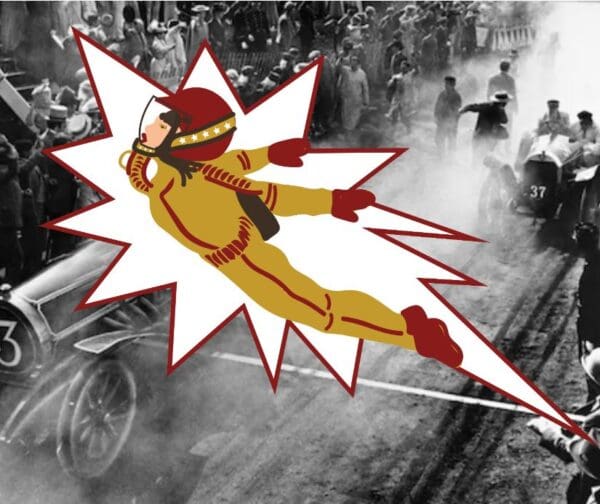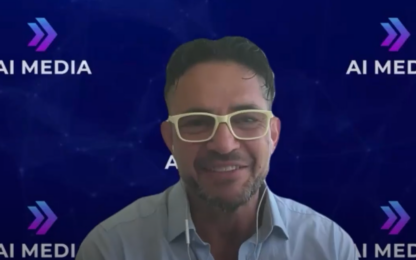
Famous Deaf People: 14 Deaf and Hard-of-Hearing People Who Changed the World
It can take hardship to notice inequalities in the world.
Many deaf and hard-of-hearing people are acutely aware of this. Experiencing discrimination and access challenges makes this clear to them.
And caring about their rights, and the rights of others who face similar challenges, has motivated many deaf and hard-of-hearing people to fight for change.
Throughout history, people have done this in many different ways. Some explore activism or politics, others create art, and still others invent new ways of communicating.
And many achieve great feats without a thought for their deafness or lack of hearing – It is not a meaningful part of the conversation for them.
But the creativity and resilience of deaf and hard-of-hearing people is limitless. Here are 14 deaf and hard-of-hearing people who have changed the world with their ideas.
Hellen Keller
Helen Keller was a remarkable American educator, disability activist and author. She is the most famous DeafBlind person in history.
In 1882, Keller was 18 months old and fell ill with an acute illness which caused her to become deaf, blind and mute. She described this childhood experience in her autobiography later as “being at sea in a dense fog”.
Keller lived at a time when there was almost no support for DeafBlind people, and she developed her own way of communicating as a young child through basic signs and feeling vibrations. Keller was then introduced to Anne Sullivan, who became her lifelong friend and teacher. Sullivan taught Keller how to finger spell and communicate in other ways.
Keller went on to study at university and became a writer and founder of the Hellen Keller International (HKI) organization, supporting blind people. She advocated regularly for Deaf rights as well, as a public speaker and activist.
She also campaigned for women’s suffrage, labor rights, pacifism and birth control.
Kitty O’Neil
Known as ‘the fastest woman in the world’, Kitty O’Neil was an American stuntwoman and speed racer, most famous in the 1970s.
Whether she was setting world speed records, or leaping 127 feet from a balcony as Lynda Carter’s stunt double in Wonder Woman, Kitty pushed the limits throughout her career.
It was a combination of multiple childhood illnesses at five months of age that affected O’Neil’s hearing. At two years of age, O’Neil’s mother recognized that her daughter couldn’t hear, and she taught her lip-reading and speech.
O’Neil continued to fight illnesses. She contracted spinal meningitis, which spoiled her Olympic diving aspirations. She continued to pursue death-defying feats, however, including water skiing, scuba diving, skydiving and hang gliding – stating that diving “wasn’t scary enough for me.”
In her 20s, O’Neil was diagnosed cancer, but that didn’t stop her, either. She set 22 speed records on land and water and retired in 1982 after stunt colleagues were killed while performing.
In her words, “Deaf people can do anything. Never give up. When I was 18, I was told I couldn’t get a job because I was deaf. But I said, someday I’m going to be famous in sports, to show them I can do anything.”
Haben Girma
Haben Girma is an accomplished disability rights lawyer and the first DeafBlind person to graduate from Harvard Law School.
Former US President Barack Obama named her a White House Champion of Change, and she has also received a Hellen Keller Achievement Award in 2018.
Girma is a passionate advocate for disability rights. She sparked her own interest in law when she could not access the menus at a university café, and demanded that they make the menus accessible for all students in compliance with the Americans with Disabilities Act (or ADA).
Girma lost her hearing and sight from an unknown illness she had as a child. She has a German Shepherd assistance dog name Mylo, and also works with an assistant to communicate with others through a braille keyboard.
She has said that her disability is an opportunity for innovation.
Chella Man
One of the most exciting young voices in the deaf and hard-of-hearing community today is 21-year-old Chella Man.
A talented visual artist, actor, influencer and activist in both the deaf and LGBTQ+ communities, Chella Man has a strong internet presence and advocates regularly for deaf and disability rights.
At four years old, Chella was diagnosed with progressive hearing loss after hearing ringing in his ears. He was told he would eventually lose his hearing completely. He now uses cochlear implants.
Chella Man discusses his experience as a deaf person and the importance of accessibility in his life in the below video.
Vint Cerf
Vint Cerf is known as one of the ‘fathers of the internet’.
He is a mathematician and inventor who co-invented TCP/IP protocol with Robert E. Kahn in 1974, which paved the way for the invention of the internet we use today.
When he was born six weeks premature in 1943, Cerf was placed in an oxygen tent to help him breathe. Doctors now believe that this might have caused his progressive nerve loss and increasing hearing loss.
Cerf is now an accessibility advocate. Talking about technological accessibility in an interview with Google, Cerf said, “It must be thought through during the design phase of any product. Accessibility and ease of use go hand in hand… There is no excuse for making products that are not accessible.”
Cerf has also worked with NASA and as Chief Internet Evangelist with Google. In 2016, his work with NASA brought humanity one step closer to ‘Interplanetary Internet’.
Derrick Coleman
Derrick Coleman is the first legally deaf offensive player in America’s National Football League (NFL).
After playing football for the University of California at Los Angeles (UCLA), Coleman signed on with Minnesota Vikings in 2012.
Coleman became legally deaf when he was three years old due to genetic hearing loss.
Throughout his professional career, Coleman has played for the Minnesota Vikings, the Seattle Seahawks, the Atlanta Falcons and the Arizona Cardinals. He uses a mixture of hand signals and lip reading to communicate with his team during games.
Want to see more famous deaf athletes? Look no further.
Claudia L. Gordon
Claudia L. Gordon is an attorney and disability advocate. She is the first Deaf Black female attorney in the United States.
Gordon began her career at the National Association of the Deaf Law and Advocacy Center after receiving a scholarship for law graduates working with people with disability. She then worked as senior policy advisor for the Department of Homeland Security, Office for Civil Rights and Civil Liberties.
Gordon has been deaf since the age of eight, but struggled to believe that she was deaf because she had been reading peoples lips and thought she was hearing their voices.
Now active in multiple advocacy spaces, Gordon was Vice President of the National Black Deaf Advocates and has also been involved with the National Coalition for Disability Rights.
Casar Jacobson
Casar Jacobson is a Norwegian-Canadian diversity and Deaf activist and scientist. She was the first Deaf person in North America to earn a national pageant title.
Jacobson was Miss Universe Canada Audience Favourite (2012), Miss Canada (2013), and Miss Peace (2013).
Jacobson was born hard of hearing in both ears. By her 20s, she was bilaterally profoundly deaf, and now has two cochlear implants.
Jacobson was also the first bilaterally profoundly deaf Canadian to work with the United Nations. She is a UN Youth and Gender Equality 50/50 Champion, and works with UN Women on projects to better improve equality in the areas of gender and disability – including access to sign language and its culture.
Also on Jacobson’s resume are multiple acting roles. She played Emily on Talk to the Hands, Emma on The Murders, and appears on The Good Doctor’s third season and Canada’s Got Talent.
Jacobson has said she believes in the power of the silent film era and that it needs to make a new debut in our ‘noisy’ world. She is at work creating new characters and writing a script for new Deaf narratives. A documentary on Jacobson’s Deaf journey is set to be released in 2020.
Tamika Catchings
Basketball superstar Tamika Catchings had a stellar 15-year career from 2002 to 2016.
She is a multiple award winner, including four Olympic Gold medals. She is also famous for recording the first ever quintuple-double (25 points, 18 rebounds, 11 assists, 10 steals and 10 blocks) in 1997.
An all-rounder on the court, Catchings spent her entire career playing for the Indiana Fever of the Women’s National Basketball Association (WNBA). She was also selected to ten WNBA All-Star teams, 12 All-WNBA teams and 12 All-Defensive teams.
Catchings was born hard of hearing, and wore a hearing aid when she was young.
She served as President of the WNBA Players Association from 2012 to 2016, and was inducted into the Women’s Basketball Hall of Fame in 2020.
Thomas Edison
Known by many as America’s greatest inventor, Thomas Edison spent much of his life with little to no hearing.
Edison is famous for engineering world-changing devices including the light bulb, the phonograph (the first device to record and play back sound), and the microphone used in telephones.
There’s much mystery surrounding the cause of Edison’s hearing loss, which he claims began as young as 12 years old. Some suggest that a case of Scarlet Fever was the cause. Others believe it was passed down within his family. Edison himself claimed that he was picked up by the ears after falling out of a train, hearing a ‘pop’ inside his ears.
Edison said that he was better able to concentrate on his work due to his hearing loss, suggesting that deaf people (like himself) should ‘take to reading’ because “it beats the babble of ordinary conversation.”
He is also famously credited with the quote: “I have not failed. I’ve just found 10,000 ways that won’t work.”
Laurent Clerc
Louis Laurent Marie Clerc was a key figure in the development of American Sign Language and deaf education.
He is considered the first ‘deaf teacher of the deaf’ in the United States and is sometimes known as ‘The Apostle of the Deaf in America’. With Thomas Hopkins Gallaudet, he co-founded the first school for the deaf in North America.
It is unclear whether Clerc was born deaf or whether he became deaf due to an injury he acquired from falling from a chair into a fire when he was one year old. He also could not smell.
Clerc also had perhaps the most famous sign name in history; the letter ‘U’ in the manual alphabet, stroked twice downward on the right cheek. This name was given to him because of the scar on his cheek from falling into the fire as a child.
Francisco Goya
Francisco José de Goya y Lucientes – better known as Fransisco Goya – was a Spanish romantic artist in the late 18th and early 19th centuries.
He had a prolific artistic career, spanning multiple styles and themes, and is still considered one of the most influential painters of this period.
Goya became deaf after a severe undiagnosed illness in 1793.
Many of Goya’s most famous paintings are intensely political and some gruesome, as he explored concepts of power, war and corruption.
See one of his most famous works below. This piece is part of what are known as his ‘Black Paintings’, which he painted on the plaster walls of his house, the Quinta del Sordo (House of the Deaf Man).
Hermon and Heroda Berhane
Lifestyle bloggers and influencers Herman and Heroda Berhane are deaf identical twins.
They have a successful fashion and travel blog Being Her, as well as a popular Instagram which explores lifestyle content and deaf awareness.
The twins have an interesting family story about their deafness. At age seven, both of them became suddenly deaf at the same time. Their brother is also deaf. But they are the only deaf members of their immediate family. They still don’t know how or why they became deaf.
The Berhanes are vocal about deaf advocacy and use their multiple channels to educate and empower their audiences.
Clayton Valli
Deaf linguist and American Sign Language (ASL) poet Clayton Valli was the first person to identify ASL poetry as a literary genre.
He also created unique and beautiful poetry with sign language.
Valli’s poetry used handshape, hand movement, facial expression, space and repetition to convey the meaning of his works. Many of his poems used the theme of nature to communicate about the deaf experience.
If you want to know more about accessibility services for deaf and hard-of-hearing people – including captioning – you can get in touch with us at Ai-Media to discover our full range of services.


